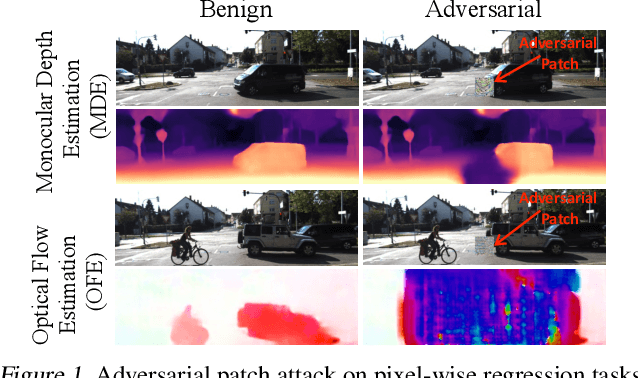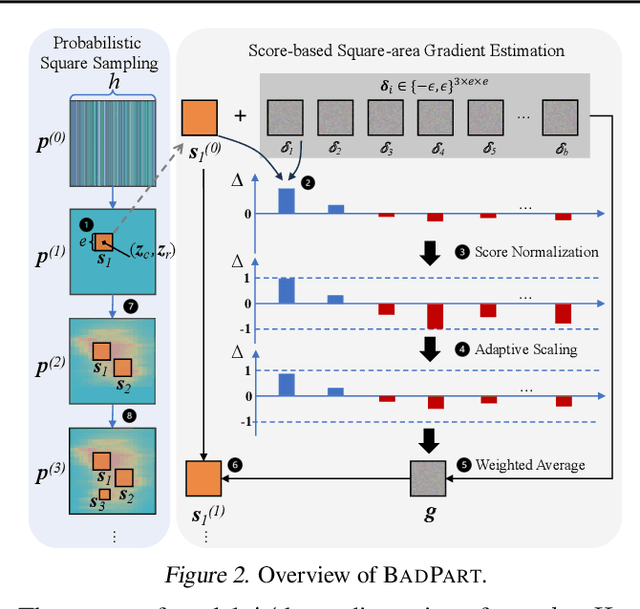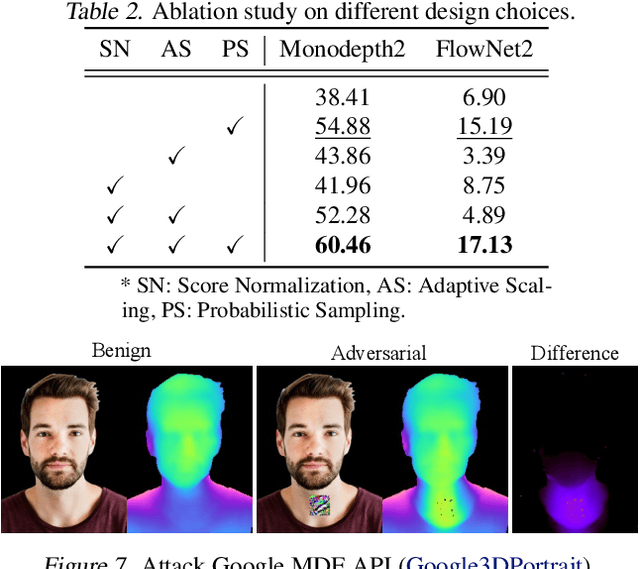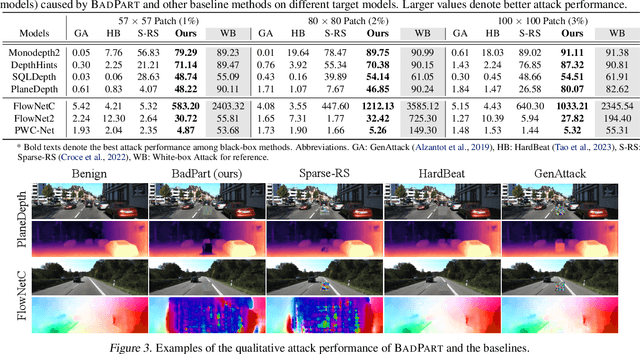Tengda Guo
BadPart: Unified Black-box Adversarial Patch Attacks against Pixel-wise Regression Tasks
Apr 01, 2024



Abstract:Pixel-wise regression tasks (e.g., monocular depth estimation (MDE) and optical flow estimation (OFE)) have been widely involved in our daily life in applications like autonomous driving, augmented reality and video composition. Although certain applications are security-critical or bear societal significance, the adversarial robustness of such models are not sufficiently studied, especially in the black-box scenario. In this work, we introduce the first unified black-box adversarial patch attack framework against pixel-wise regression tasks, aiming to identify the vulnerabilities of these models under query-based black-box attacks. We propose a novel square-based adversarial patch optimization framework and employ probabilistic square sampling and score-based gradient estimation techniques to generate the patch effectively and efficiently, overcoming the scalability problem of previous black-box patch attacks. Our attack prototype, named BadPart, is evaluated on both MDE and OFE tasks, utilizing a total of 7 models. BadPart surpasses 3 baseline methods in terms of both attack performance and efficiency. We also apply BadPart on the Google online service for portrait depth estimation, causing 43.5% relative distance error with 50K queries. State-of-the-art (SOTA) countermeasures cannot defend our attack effectively.
Couler: Unified Machine Learning Workflow Optimization in Cloud
Mar 12, 2024Abstract:Machine Learning (ML) has become ubiquitous, fueling data-driven applications across various organizations. Contrary to the traditional perception of ML in research, ML workflows can be complex, resource-intensive, and time-consuming. Expanding an ML workflow to encompass a wider range of data infrastructure and data types may lead to larger workloads and increased deployment costs. Currently, numerous workflow engines are available (with over ten being widely recognized). This variety poses a challenge for end-users in terms of mastering different engine APIs. While efforts have primarily focused on optimizing ML Operations (MLOps) for a specific workflow engine, current methods largely overlook workflow optimization across different engines. In this work, we design and implement Couler, a system designed for unified ML workflow optimization in the cloud. Our main insight lies in the ability to generate an ML workflow using natural language (NL) descriptions. We integrate Large Language Models (LLMs) into workflow generation, and provide a unified programming interface for various workflow engines. This approach alleviates the need to understand various workflow engines' APIs. Moreover, Couler enhances workflow computation efficiency by introducing automated caching at multiple stages, enabling large workflow auto-parallelization and automatic hyperparameters tuning. These enhancements minimize redundant computational costs and improve fault tolerance during deep learning workflow training. Couler is extensively deployed in real-world production scenarios at Ant Group, handling approximately 22k workflows daily, and has successfully improved the CPU/Memory utilization by more than 15% and the workflow completion rate by around 17%.
 Add to Chrome
Add to Chrome Add to Firefox
Add to Firefox Add to Edge
Add to Edge